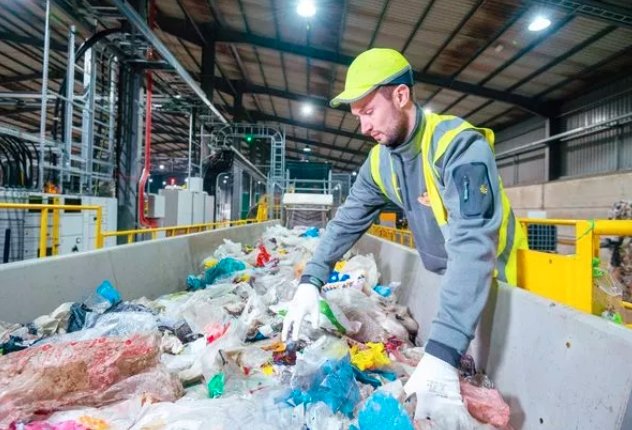EDINBURGH – August 12, 2025 — Scotland’s ambition to lead the way in circular economy innovation is being undermined by a stubborn bottleneck: a shortage of domestic facilities to reprocess plastics, metals, paper and batteries. A new government-commissioned assessment has revealed that the country exports most of its high-value recyclable materials, forfeiting millions in potential economic gains.
The Waste Reprocessing Infrastructure in Scotland report, published last week under the Circular Economy (Scotland) Act 2024, paints a striking picture: just 1.3% of the resources used in Scotland are cycled back into its own economy. That’s a fraction of the UK’s 7.5% and far behind the Netherlands’ 24.5% — the EU’s frontrunner in circularity.
From Organic Waste Wins to Metals Misses
While Scotland has developed strong in-country processing for organic waste, glass, and construction materials, its domestic infrastructure falters when it comes to more lucrative or strategically critical resources.
The numbers tell the story:
-
Plastics: 78,000 tonnes exported annually; only 14% of available plastic reprocessed locally.
-
Aluminium: 161,000 tonnes exported; just 10% processed domestically.
-
Steel: 379,000 tonnes exported; only 8% of the 412,000 tonnes available handled within Scotland.
The absence of local processing capacity means Scotland depends heavily on facilities elsewhere in the UK and in the EU. That dependence comes at a cost — both in terms of missed jobs and lost value from materials leaving the country.

The Opportunity Cost
The report estimates that Scotland generated 9.55 million tonnes of waste in 2023, a 20% reduction from 2011 levels. Encouragingly, 86% of that waste was managed within Scotland. Yet the proportion of recycled materials that are reused in the domestic economy remains negligible.
The economic loss is far from abstract. The waste and resources sector contributed over £750 million to Scotland’s economy in 2021. Across the UK, the material value chain stands at £23.5 billion.
Zero Waste Scotland estimates that nearly one in 10 Scottish jobs is tied to the circular economy, and that investing in domestic reprocessing could unlock substantial regional gains. Prior research suggested that adopting circular business models could be worth £1 billion in Tayside, Aberdeen and Aberdeenshire alone.
Six Strategic Priorities
To address the bottlenecks, the Scottish Government has identified six key action areas:
-
Strategic Capability – Developing domestic capacity for critical raw materials and battery reprocessing.
-
Stable Material Supply – Ensuring a consistent flow of feedstock for reprocessors to support investment confidence.
-
Business Access to Waste Streams – Reducing barriers for companies seeking to process or repurpose waste.
-
Stimulating Demand – Creating stronger markets for reprocessed materials through procurement policies and incentives.
-
EU Policy Alignment – Staying in step with European environmental and recycling regulations to ease trade and cooperation.
-
Better Data Systems – Improving the tracking of waste flows to identify and plug capacity gaps.
Circular Economy Lag
The report’s findings land at a politically sensitive time for the government’s green agenda. Scotland’s performance lags behind international leaders despite years of pledges to boost circularity.
By comparison, the Netherlands recycles and reuses nearly a quarter of the resources it consumes — a benchmark Scotland is still far from reaching. Industry experts warn that the lack of domestic reprocessing infrastructure risks making Scotland more vulnerable to global market volatility in scrap prices, shipping costs and cross-border waste regulations.
Investment and Private Sector Role
Although most investment in reprocessing facilities is driven by the private sector, the Scottish Government has already put over £1 billion into supporting recycling and waste management improvements. Officials argue that public investment needs to be paired with targeted policy incentives to attract private capital into high-value streams like plastics and metals.
The report notes that battery reprocessing is an especially urgent priority, with electric vehicle uptake and renewable energy storage technologies set to drive up demand for critical materials. Without domestic facilities, Scotland could miss out on capturing this emerging market.
A Missed Local Opportunity
The executive summary strikes a clear note: preventing the loss of local economic opportunities is just as important as meeting environmental targets. Exporting recyclable materials means exporting jobs, innovation, and industrial resilience.
For businesses, the current model means higher costs and longer lead times for recycled inputs. For the economy, it means continued dependence on imported virgin materials, even when secondary materials are being generated on home soil.
With circular economy legislation now in force, the pressure is on ministers to close the loop — and quickly.


















